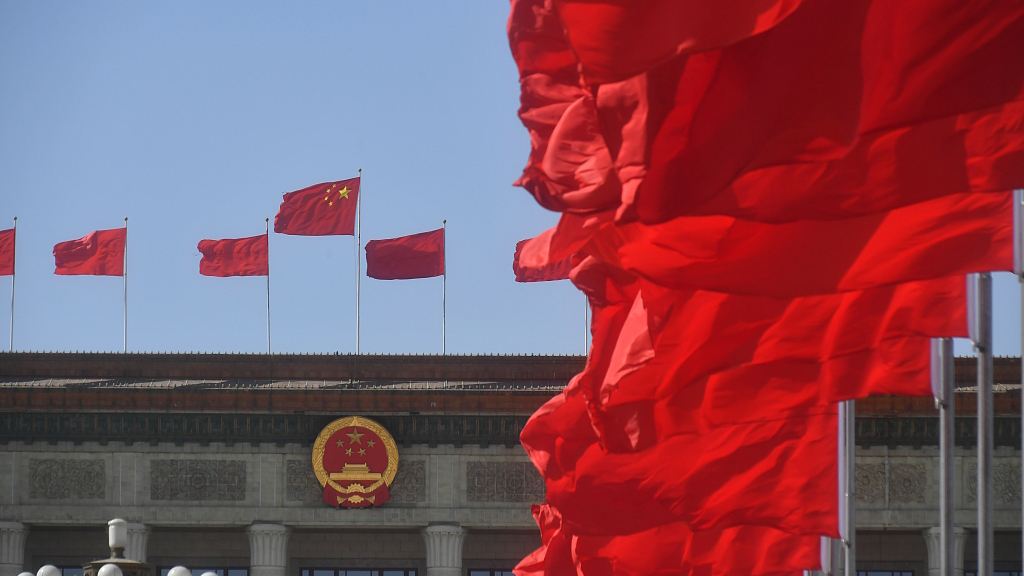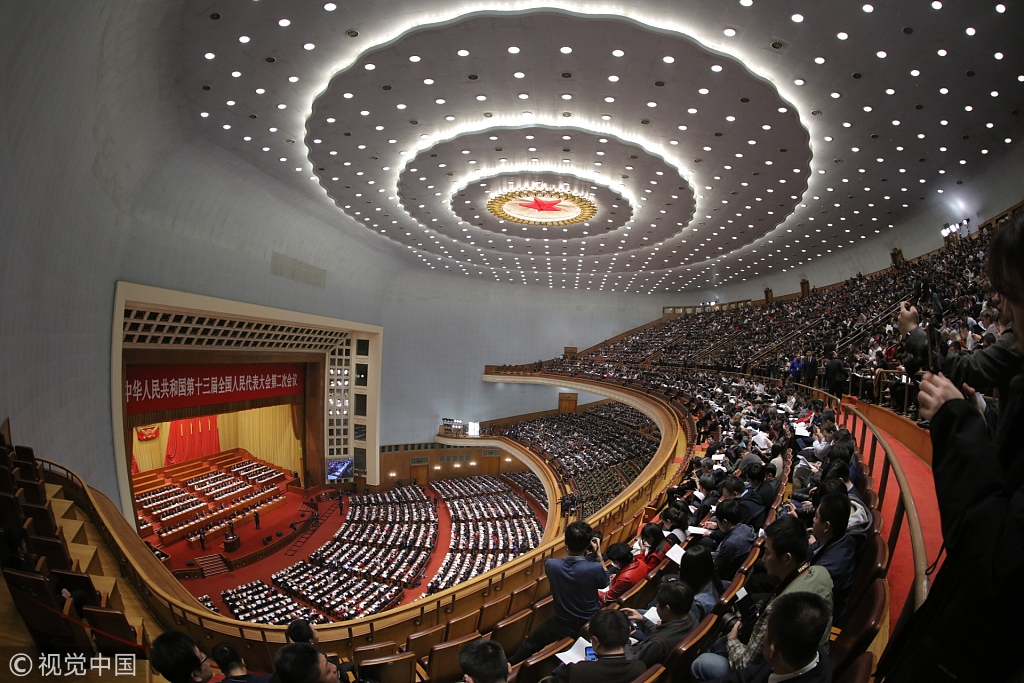
Opinion
14:32, 05-Mar-2019
New chances for China to counter downward pressure on growth
Updated
17:51, 05-Mar-2019
Wang Shanshan

Editor's note: Wang Shanshan is a current affairs commentator and former Washington bureau chief of China Radio International (CRI), with 10 years of research on China-U.S. relations. The article reflects the author's opinion, and not necessarily the views of CGTN.
Will China be able to maintain steady growth this year despite the challenges facing the world's economy? The answer to this question was loud and clear when China's Premier Li Keqiang delivered the government work report at the opening session of the National People's Congress on Tuesday. In addition to the growth rate the world is watching, new measures have been promised to support the country's ongoing development. Understanding these opportunities helps businesses at home and abroad to get the upper hand in an international environment that is looking less promising than it was a few years ago.
The work report released during the Two Sessions – the annual meeting of the national legislature and the country's top political advisory body – plays a major role in setting the agenda for the year ahead. The government set the growth rate for this year at between 6 percent and 6.5 percent. It has also set a target to add 11 million new urban jobs, reduce the number of people living in rural poverty by over 10 million, and make further improvements in environmental protection.
Confidence in China's ability to reach these goals is buttressed by the country's achievements in 2018. Despite the gloomy predictions of some analysts, China's GDP grew by 6.6 percent last year to hit 90.03 trillion yuan (about 13.46 trillion U.S. dollars), which is in line with the predictions of the International Monetary Fund and the World Bank.
China's premier said the real economy faces many problems, and downward pressure continues to increase, the difficulties must not be underestimated. However, China's confidence is not weakened, given its resilience, potential and creativity to unleash.
Reducing the burdens on businesses
Last year saw the government dramatically ease the tax burden on its enterprises and taxpayers to the tune of around 1.3 trillion yuan. The trend towards lower taxes will continue thanks to the rollout of large scale tax cuts targeting the manufacturing and small business sector, which provide the economy with 80 percent of its job creation and 50 percent of its revenue. The tax burden and social insurance contributions of enterprises will be reduced by nearly 2 trillion yuan this year, and there will be a substantial boost in loans to small businesses.
China's government is determined to improve the business environment for both domestic and international enterprises by reducing the burden of regulation, improving government services, enhancing protection of intellectual property rights, and reducing government-imposed fees and charges. It's clear that promoting fair competition and making the most out of the market's vitality is high on the government's agenda.

China's 2019 National People's Congress opens on March 5, 2019, in Beijing. /VCG Photo
China's 2019 National People's Congress opens on March 5, 2019, in Beijing. /VCG Photo
Opening the door to the economy wider
While some countries are closing their doors and erecting trade barriers, China's government is opening the doors to the country's economy even wider to the world. Concrete measures mentioned in the government work report include opening more sectors to foreign investment, following financial services, information technology, and motor vehicle manufacturing.
During the Two Sessions, lawmakers will deliberate a key piece of legislation – the foreign investment law. If it is adopted, the law will replace three existing laws governing foreign investment. The new law will lower industry and regional barriers, widen market access, provide a level playing field for government procurement, and strengthen the protection of property rights. These measures will help to create new opportunities for global investors.
The optimism about China's economy is shared by the international enterprises doing business here. Last year, China broke records on both foreign trade and foreign direct investment, with the number of new foreign enterprises growing by 70 percent. In its latest business climate survey, the American Chamber of Commerce in China said that 62 percent of its members saw China as one of their top three global priority areas for investment. Against the backdrop of lackluster global growth, many international enterprises see the logic in securing their place in the world's second-largest economy.
Driving growth with innovation
Some international observers have suggested that China has a comparative advantage when it comes to artificial intelligence, deep learning and big data, and that there is a good chance China will be the leader in these fields five years from now. Whether or not this plays out, over the past few years China has been transforming its economy into one that is greener, more innovative, and more sustainable – and these efforts will be stepped up even further this year.
According to the government work report, China will bolster its research and development capability in the application of big data and artificial intelligence technologies, and foster emerging industries like next-generation information technology, biomedicine, new-energy automobiles, and new materials science. Steps being taken to make that happen include the launch of a science and technology innovation board with a registration-based initial public offering (IPO) system. This pilot program, which took effect on March 1, aims to improve the financing environment for high-tech companies. This is just one of the measures that are expected to help China phase out old drivers of growth.
The bigger the economy, the more effort it takes to generate each percentage point of growth. And mounting protectionism and unilateralism in parts of the world economy have exacerbated global instability and uncertainty. But despite these pressures, China's wide-ranging and comprehensive new measures to support its economy will help to ensure that its local enterprises and global partners can continue to enjoy the benefits of the country's ongoing development
(If you want to contribute and have specific expertise, please contact us at opinions@cgtn.com.)

SITEMAP
Copyright © 2018 CGTN. Beijing ICP prepared NO.16065310-3
Copyright © 2018 CGTN. Beijing ICP prepared NO.16065310-3